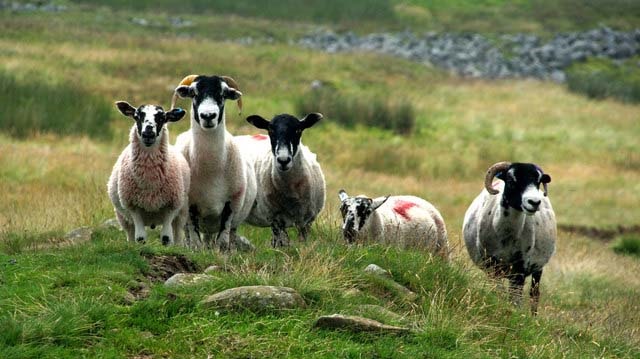
NFU livestock board chairman Charles Sercombe will take the concerns of UK sheep farmers to Brussels at the first meeting of the European reflection group on sheep.
Set up by Agriculture Commissioner Phil Hogan, Mr Sercombe was invited to join the forum as part of his work with the European farmers’ organisation Copa. Creating the forum was a key part of the NFU’s 10-point plan for action during this summer’s commodity crisis.
Speaking ahead of the inaugural meeting, Mr Sercombe said he was eager to be a loud voice for UK sheep farmers in these workshops.
“The 85 million head sheep flock herd in Europe contributes enormously to the economic wellbeing vitality of rural areas – around €5.2 billion euros last year. But after the consistently low lamb prices seen this year, the sector needs urgent and innovative action to arrest the poor returns seen by many producers.
“In particular, it is critical that we challenge the strong competition European farmers’ face from outside the EU. New Zealand has a fixed EU quota of 228,000 tonnes. We believe that the move from frozen to fresh, and from carcases to bone in cuts represents a substantive change in the trade since the original agreement in the 1980’s and this change is having an effect on the UK and EU sheep market.
“We also need to set up a clear and transparent deadweight pricing systems, ensuring that we have the most accurate market data available. A transparent grading and dressing specification system – just as we have in the beef carcase classification system – should be created to ensure we have reliable scrutiny. Beyond simple market intelligence, the lack of a consistent grading and weighing system for sheep means that important aspects such as genetic improvement and efficiency cannot be reliably measured.
“The sector is crying out for some common sense – particularly in the UK where farmers are hard hit for small infringements. We need regulators to introduce tolerances into our inspections system that do penalise farmers for minor errors such as ear tag reading failures or the odd missing record or a few ear tags. Government should work towards a system that is based on batch recording as the default for all movements.
“I am pleased to have the opportunity to represent the UK sheep sector in Europe. We have an optimistic future ahead – if our legislators will listen.”
